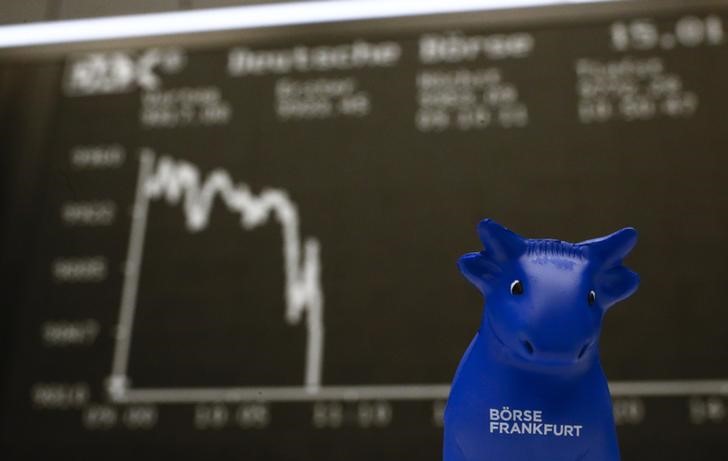German construction sector still in recession, civil engineering only bright spot
Investing.com - European stock markets sank on Friday, as investors digested the latest European Central Bank rate reduction ahead of the release of key U.S. employment data amid uncertainty over U.S. trade policies.
At 06:30 ET (11:30 GMT), the pan-European Stoxx 600 had fallen by 0.5%, the DAX index in Germany dropped 1.6%, the CAC 40 in France slipped 1.0% and the FTSE 100 in the UK dipped 0.5%.
ECB cuts again
The ECB cut interest rates once more on Thursday, as widely expected, its sixth cut since June, but said monetary policy was becoming less restrictive as inflation falls towards its 2% target.
The central bank also lowered its growth forecast for 2025 due in large part to uncertainty around global trade tension.
While this would point to further cuts, ECB President Christine Lagarde stopped short of reaffirming that rates were on a downward path and instead said that a reduction or a pause were both on the cards.
"The ECB delivered a neutral to marginally hawkish rate cut. We believe the change in wording on restrictiveness is at the margin more hawkish than we expected," Nomura economists said in a note late on Thursday.
Nomura now expects the ECB to lower rates only once this year, having earlier this week lowered its rate cut outlook to two reductions from four in 2025, citing the impact of potential fiscal loosening in Germany.
Data released earlier Friday showed that German industrial orders in January fell by 7% from the previous month, as the previous month’s upswing petered out.
December orders had risen significantly more than expected on a burst of demand for aircraft, ships, trains and military vehicles.
The parties hoping to form Germany’s next government this week agreed to overhaul state borrowing rules to boost defence spending, while also boosting infrastructure investments.
Trade uncertainty
Investors are also having to digest U.S. President Donald Trump whipsawing trade policies.
Trump escalated trade tensions at the start of the week by imposing 25% tariffs on Canadian and Mexican goods and raising Chinese tariffs to 20%.
However, after just two days, he eased his stance, delaying the 25% tariffs on Mexican and Canadian goods under the United States-Mexico-Canada Agreement until April 2.
The move, while offering temporary relief, has added to market volatility and uncertainty as markets remain unclear about U.S. trade policies.
This uncertainty has weighed on sentiment, and investors will focus on U.S. jobs data and a speech from Federal Reserve Chair Jerome Powell later in the session for more guidance over future monetary policy.
Crude set for weekly decline
Oil prices rose Friday, but were set for a hefty weekly decline amid uncertainty around U.S. tariff policy at the same time major producers are set to increase output.
At 06:30 ET (11:30 GMT), Brent futures rose 1.6% to $70.55 a barrel, while U.S. West Texas Intermediate futures rose 1.5% to $67.37 a barrel.
However, for the week both contracts are off over 3%.
Markets, including oil, have been whipsawed by fluctuating trade policy in the U.S., the world’s biggest oil consumer.
